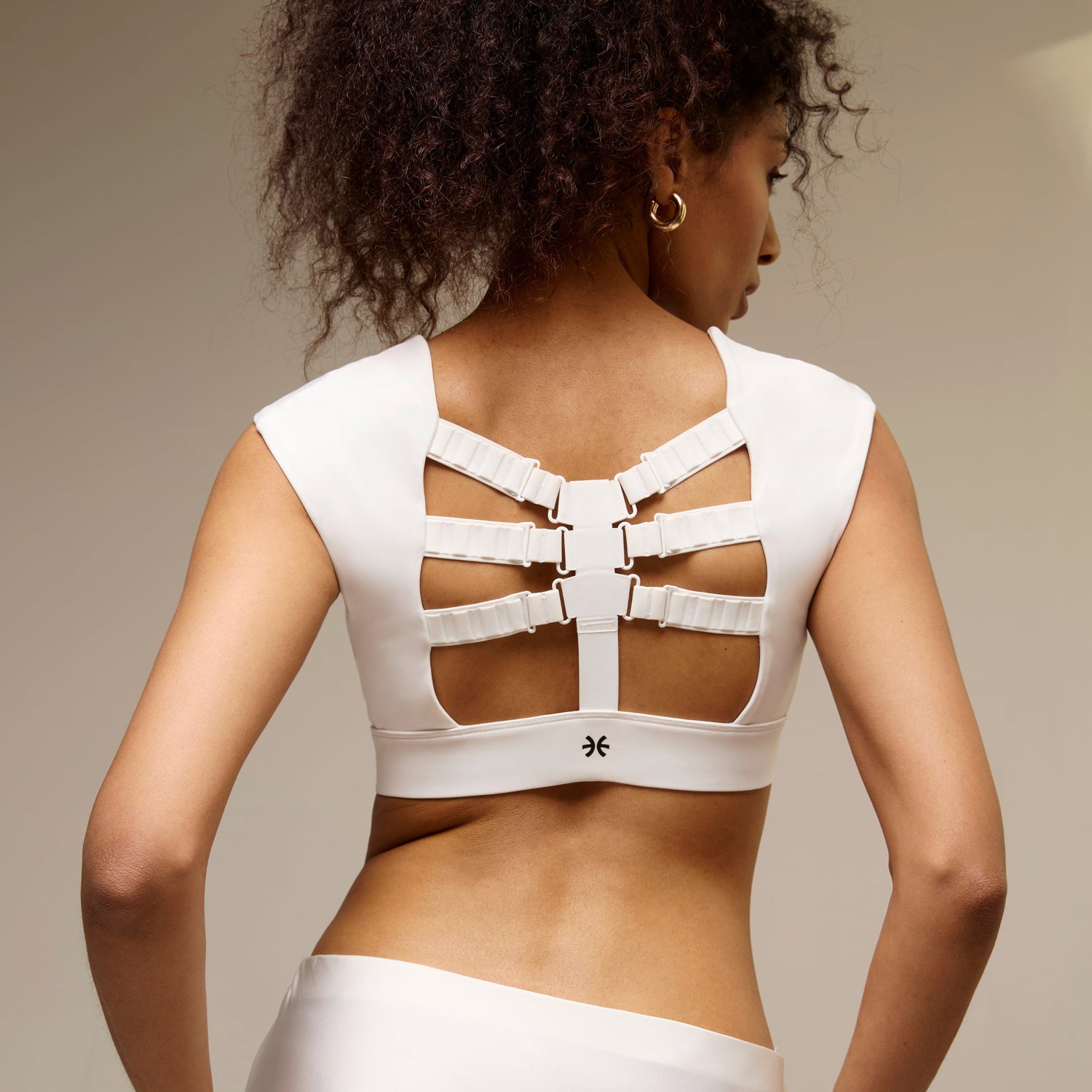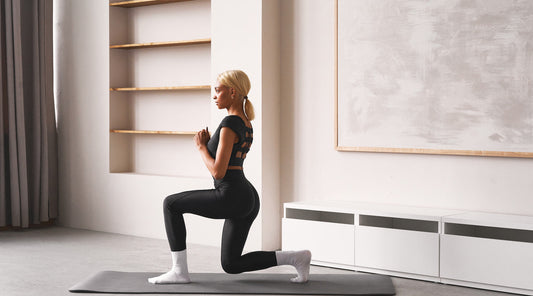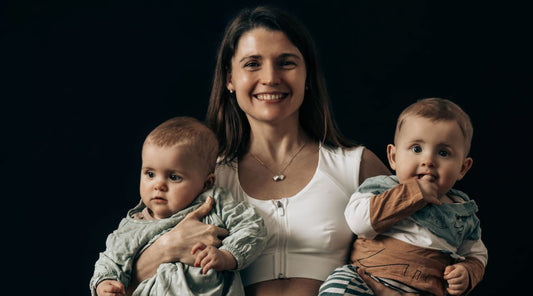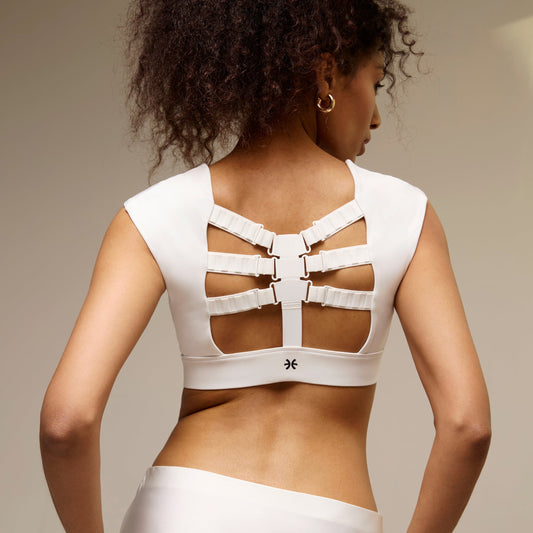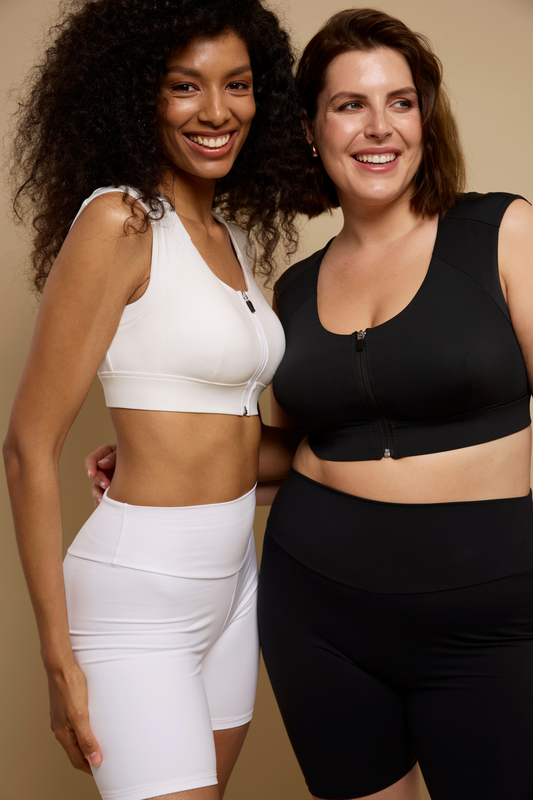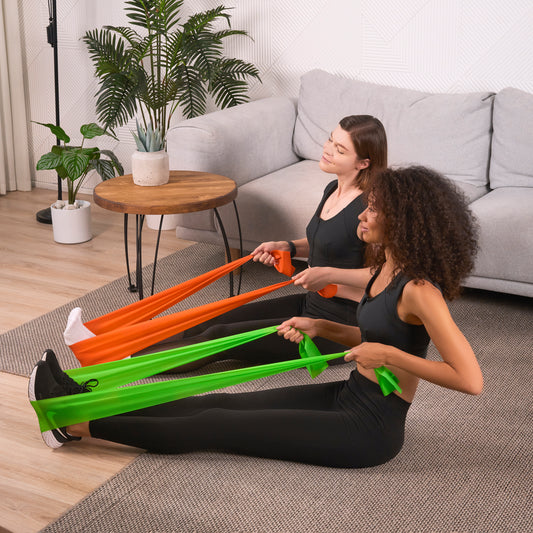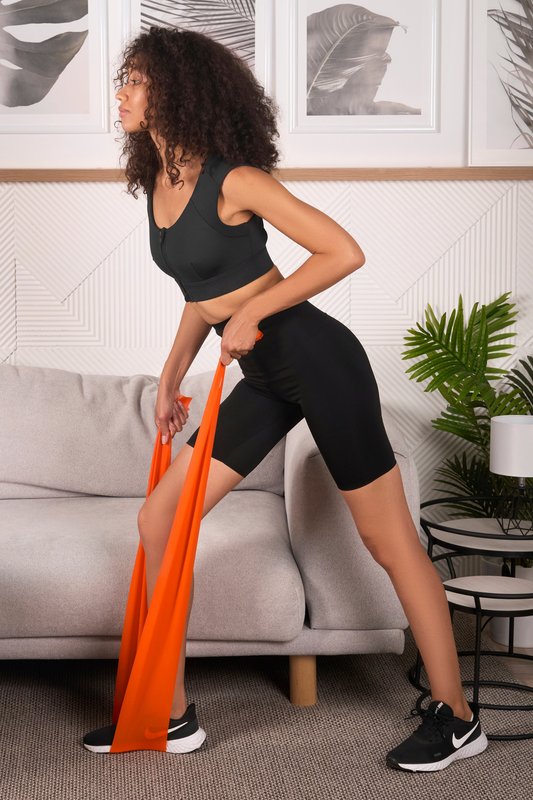A number of variables, such as improperly configured at-home modern workstations and prolonged use of electronics, can make it more difficult than ever to maintain good posture. These circumstances can result in chronic forward head position, also known as text neck and tech neck.
That is why posture correctors are trendy right now. However, what about the evolution of posture bras? Where are the roots of the need to wear a posture bra to improve not only your posture but also your general well-being?
Can you remember your mom always telling you to sit up straight? Mothers have been pleading with us for ages, as far back as the eighteenth century, when a straight back was correlated with a "moral" upper-class society.
People who sat upright were seen as respectable, reliable, and well-looking. However, a hunched-back was associated with a lower class, morally "loose" culture. Let’s dive into the history of posture bras more.
Importance of Posture Bras in Women's Health and Wellness
Shoulder and back pain regularly might result from women with bigger breasts and a fuller body wearing improper-sized bras. Wearing an Etalon posture correcting bra may help your breasts feel more supported, relieving pressure on your back and shoulders.
The purpose of posture correction bras is to increase support at important shoulder stress spots. Most typical women's bras don't consider this. The shoulder straps and backband, for instance, are broader.
A posture bra can help you have better posture by bringing your shoulders back and lessening upper back flexion. If you take care of your posture, then keep monitoring your wellness after its correction. There is no doubt how fresh and better you will feel if you have excellent posture. So, how posture bras came about?
The Origins of Posture Bras
Early Concepts of Posture Support
Through the lens of posture bra history, we see that the ideas of proper and incorrect posture gained significance as posture became increasingly prevalent in daily life.
In the 19th century, movements such as German krankengymnastics and Swedish gymnastics introduced the concept of pathological postures and the ideal posture, such as the well-known kyphotic, lordotic, flatback, and swayback. These movements closely linked posture to ideas of health and illness.
Early posture bras and formal clothing like corsets, jackets, and greatcoats, together with less accommodating, upright furniture, allowed individuals of the nineteenth century to sit and stand up straight.

Invention of the First Posture Bra
In 1850, the corset was invented. It had the unintended effect of forcing women to die young; it was a significant advancement in posture correction.
The first posture bras were made available around the 1920s as part of an increasing movement to use supportive undergarments to improve posture and spinal alignment.
Nowadays, there is a strong medical argument against "the slouch," in contrast to the obvious cultural and societal prejudice that existed in the past. Our present bad posture is largely the result of our love affair with spending hours bent over a computer.
The Evolution of Posture Bras
Advancements in Design and Technology
The days of wearing just mixtures of cotton or polyester for bras are long gone. These days, certain functions are taken into consideration while designing textiles. Stretchability, moisture-wicking properties, and breathability are all balanced in these novel fabrics.
For example, memory foam and cushioned gel inserts provide more support and contour to an individual's particular shape. Bras are perfect for daily comfort and intense activity because of innovations like moisture-wicking materials, which are especially useful for active wear.
The Etalon posture correcting bra's customizable design is a key component. The centerpiece in the back keeps the six adjustable straps together. By contracting the postural muscles of the upper back and bringing the shoulder blades closer together, these straps help provide support.
Influence of Fashion Trends
Fashion trends impact posture bras in a few ways:
- Design aesthetics: posture bras follow the latest trends in color and style.
- Materials: advances in fabric technology propel the creation of posture bras with cutting-edge characteristics like flexibility and breathability.
- Cultural shifts: a greater variety of sizes and designs results from growing body acceptance and inclusion.
- Functionality: athleisure trends impact bras by combining support with flair and adaptability.
The sleeker, lighter fabric and easier-to-adjust Etalon posture bra provide similar functionality, allowing for a more powerful pull from the straps.
The Modern Posture Bra
A modern posture bra feels and appears like a standard sports bra. It covers the chest and back and usually has a front fastening and crisscross elastic bands over the upper back. Together, these characteristics help a person's breasts support their weight and release stress in their back, shoulders, and neck.
The elastic bands on the posture bra will tug on you if you start to slouch or round forward while wearing it, prompting you to straighten up. This aids in maintaining the normal alignment of the spine and prevents the shoulders from retraction.
Future Trends in Posture Bras
Thanks to a few major factors, posture bras of the future should see significant advances. Sensors and applications that offer real-time feedback to users to help them successfully monitor and correct their posture will become standard features of smart technology.
The aforementioned advancement highlights the increasing focus on customization. Bras are made to fit certain body types and contours, improving comfort and support.
Sustainability will become increasingly important in design when environmentally friendly materials and moral production methods become more popular. This change reflects a larger trend toward conscientious consumption and environmental responsibility.
As posture bras develop to include fashionable components that complement both daily and athletic attire, the harmony of fashion and function will become increasingly significant.
Conclusion
Posture bras have evolved from simple, supportive garments to items that combine sustainability, technology, and design. Incorporating eco-friendly materials, intelligent functions, and customizable designs, posture bras have developed beyond their original sole purpose of support.
To provide consumers with a well-balanced combination of support and style, posture bras will continue to showcase advancements that satisfy both functional requirements and aesthetic preferences.
Photo by Sergey Meshkov on Pexels
FAQs
What is the primary purpose of a posture bra?
How did the concept of posture bras originate?
When were posture bras first introduced?
How have posture bras changed over time?
Can modern posture bras be worn daily?
Trending
Try Etalon posture improvement products
